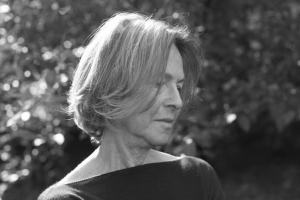An elderly writer had formed the habit of writing the words THE END on a piece of paper before he began his stories, after which he would gather a stack of pages, typically thin in winter when the daylight was brief, and comparatively thin in summer when his thought became again loose and assiociative, expansive like the thought of a young man. Regardless of their number, he would place these blank pages over the last, thus obscuring it. Only then would the story come to him, chaste and refined in winter, more free in summer. By these means he had become an acknowledged master.
He worked by preference in a room without clocks, trusting the light to tell him when the day was finished. In summer, he liked the window open. How then, in summer, did the winter wind enter the room ? You are right, he cried out to the wind, this is what I have lacked, this decisiveness and abruptness, this surprise- O, if I could do this I would be a god ! And he lay on the cold floor of the study watching the wind stirring the pages, mixing the written and unwritten, the end among them.
La fenêtre ouverte
Un vieil écrivain avait pris l'habitude d'écrire le mot FIN sur un bout de papier avant de commencer ses histoires, après quoi il prenait un paquet de feuilles, généralement mince en hiver quand les jours étaient courts, et comparativement épais en été quand sa pensée redevenait souple et associative, abondante comme la pensée d'un jeune homme. Quel que soit leur nombre, il plaçait ces feuilles blanches sur la dernière, la dissimulant par là même. Alors seulement l'histoire lui arrivait, chaste et raffinée en hiver, plus libre en été. C'est ainsi qu'il était devenu un maître reconnu.
Il travaillait de préférence dans une pièce sans horloges, se fiant à la lumière pour savoir quand le jour était fini. En été, il aimait avoir la fenêtre ouverte. Comment donc, en été, le vent de l'hiver pénétrait-il la pièce ? Vous avez raison, cria-t-il au vent, c'est cela que j'ai manqué, cet aspect définitif et abrupt, cette surprise -oh, si je pouvais faire ça je serais un dieu ! Et il s'allongea sur le sol froid de l'étude, regardant le vent battre les feuilles, mêlant celles qui étaient écrites et celles qui n'étaient pas écrites, la fin se trouvant parmi elles.
Louise Glück, Nuit de foi et de vertu, Édition bilingue, Poèmes, Traduit de l'Anglais (États-Unis) et présenté par Romain Benini, Éditions Gallimard, 2014, pp. 102,103.
L O U I S E G L Ü C K

Ph. © Katherine Wolkoff
Louise Glück
sur Terres de femmes ▼
→ Vespers (poème extrait de L'Iris sauvage)
Voir aussi ▼
→ (sur Poetry Foundation) une notice bio-bibliographique sur Louise Glück
→ (sur ActuaLitté) La poétesse américaine Louise Glück, Prix Nobel de Littérature 2020
→ (sur cairn.info) d'autres poèmes issus de L'Iris sauvage, traduits et présentés par Marie Olivier
(in Po&sie 2014/3-4 [n° 149-150], pp. 46 à 53)
